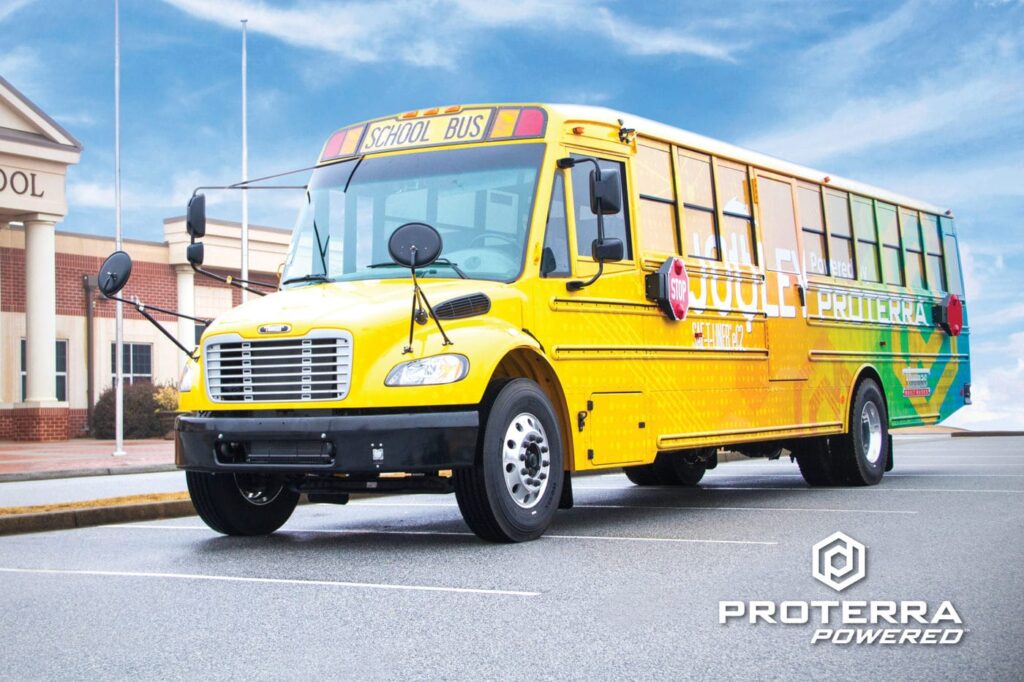Electric bus tackles Alaska with aplomb
- PostedPublished 25 February 2022
One of the common concerns regarding electric vehicles, be they passenger or commercial, is how they fare in extreme climates.
Freezing temperatures entail hefty heating-induced electrical demands, which can greatly reduce the range of a vehicle to an intolerable degree.
Such conditions often introduce reliability question marks, too – and, in the field of public transport, both reliable range and outright reliability are essential.
However, Alaskan school bus company Tok Transportation reports that its first electric-powered bus is so far performing well in conditions as cold as -40°C.
“The bus has been performing well, and it has definitely lived up to expectations,” said Gerald Blackard, co-owner of Tok Transportation, in an interview with bus manufacturer Thomas Built Buses (TBB).

“In fact, it has exceeded my expectations in cold weather, which is often sub-zero [Fahrenheit] temperatures. It has performed seamlessly, and the heating system, which also runs off electricity, works well to keep the bus warm.”
The refined and quiet performance of the bus is also praised by Blackard, as are its low maintenance requirements and environmentally friendly nature. “We use solar panels to help charge the bus at the bus barn,” said Blackard, “which works with how the school is set up to be sustainable.”
The bus used is a Saf-T-Liner C2 Jouley electric school bus from American manufacturer TBB, which employs electric vehicle technology from American specialist Proterra.
Seating for up to 81 is offered, and drive is provided by a 220kW electric motor and a two-speed transmission. TBB claims that the standard 226kWh battery also grants a range of up to 222km.
- CategoriesIn SightGlass
- Tagssightglass news issue 26

